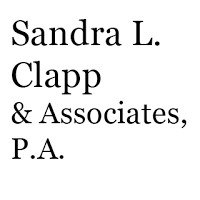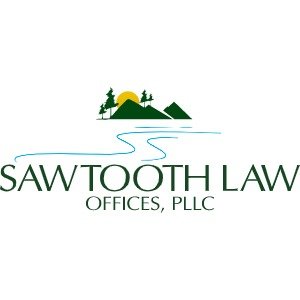Best FDA Law Lawyers in Idaho
Share your needs with us, get contacted by law firms.
Free. Takes 2 min.
Or refine your search by selecting a city:
List of the best lawyers in Idaho, United States
About FDA Law in Idaho, United States
FDA Law refers to the legal framework that governs the regulation, safety, marketing, and distribution of food, drugs, medical devices, cosmetics, and other products under the authority of the United States Food and Drug Administration (FDA). In Idaho, as in other states, businesses and individuals involved with FDA-regulated products must comply with federal FDA requirements as well as relevant state laws. These regulations are designed to ensure that products are safe, effective, and labeled correctly for consumers.
Why You May Need a Lawyer
Navigating FDA Law can be complex, especially for manufacturers, distributors, pharmacies, medical professionals, and even consumers. Some common situations where legal assistance may be necessary include:
- Launching a new food, drug, or medical device product in Idaho
- Responding to an FDA warning letter or inspection notice
- Dealing with product recalls or labeling disputes
- Ensuring proper compliance with both state and federal regulations
- Addressing allegations of misbranding or adulteration
- Guidance on dietary supplements or cannabis-derived products
- Protecting intellectual property related to FDA-regulated products
Local Laws Overview
While the FDA is a federal agency, Idaho has adopted and enforces additional regulations through its own state agencies such as the Idaho Department of Health and Welfare and the Idaho Board of Pharmacy. Notably:
- Idaho incorporates many FDA standards into state law, particularly for food safety and pharmacy practice.
- The state regulates the sale and distribution of controlled substances and prescription medications.
- Idaho law requires specific licensing and permitting for businesses handling food, drugs, or medical devices.
- Certain aspects of cannabidiol (CBD) and hemp-derived products are subject to Idaho’s strict state-level controls, which may differ from federal policy.
- Health providers and pharmacies must adhere to both FDA and state requirements regarding medication compounding and record-keeping.
Frequently Asked Questions
What is the role of the FDA in Idaho?
The FDA sets and enforces regulations for food, drugs, medical devices, cosmetics, and related products nationwide. In Idaho, local companies must comply with both FDA requirements and any additional state-level rules.
Do Idaho businesses need to register with the FDA?
If your business manufactures, processes, packs, or holds FDA-regulated products, federal law typically requires registration with the FDA. Certain Idaho state agencies may require additional local permits or licenses.
Can Idaho adopt stricter laws than the FDA?
Yes, Idaho can enact and enforce stricter laws and regulations than those set by the FDA, as long as these do not conflict with federal law.
What should I do if I receive an FDA warning letter in Idaho?
It is important to consult a lawyer experienced in FDA law. You will need to respond promptly and accurately, address the violations, and ensure ongoing compliance to avoid further penalties.
Who regulates medical marijuana and CBD in Idaho?
Idaho has its own laws on medical marijuana and CBD products, which are generally more restrictive than federal law. The Idaho Legislature and state law enforcement agencies enforce these regulations.
How can I make sure my food product complies with Idaho and FDA laws?
You should consult regulatory experts or legal counsel to verify compliance with FDA standards and obtain the necessary Idaho permits or licenses. Labeling, safety, and manufacturing standards must all be met.
What happens in the case of a product recall in Idaho?
Recalls may be initiated by the FDA or by state agencies and are designed to protect public health. Businesses are required to cooperate, notify consumers, and take corrective actions as needed.
Are dietary supplements regulated differently in Idaho?
Dietary supplements are broadly regulated by the FDA, but Idaho may have additional requirements or restrictions, including those related to labeling, advertising, and health claims.
What agencies enforce pharmacy laws in Idaho?
The Idaho Board of Pharmacy oversees state-level pharmacy regulation, which works in conjunction with federal laws enforced by the FDA and the Drug Enforcement Administration (DEA).
How do Idaho state laws impact online sales of FDA-regulated products?
Companies selling FDA-regulated goods online to Idaho residents must ensure products comply with both FDA rules and stricter Idaho state laws where applicable, especially for controlled substances or restricted products.
Additional Resources
People seeking help with FDA Law in Idaho should consider these resources:
- FDA District Office for the Pacific Northwest
- Idaho Department of Health and Welfare - Food Protection Program
- Idaho State Board of Pharmacy
- Idaho State Department of Agriculture
- Legal Aid organizations offering consumer protection guidance
- Trade associations for food, pharmaceuticals, and medical devices
Next Steps
If you need legal assistance in the area of FDA Law in Idaho, it is wise to:
- Clearly identify your specific issue or concern related to FDA law.
- Gather all documents, notices, and communications from the FDA or Idaho agencies.
- Contact a qualified Idaho attorney who has experience in FDA and regulatory law. Ask about their experience with federal and state compliance for your type of product or business.
- Review all compliance documents with your attorney and develop a plan for response or corrective action if needed.
- Follow up with any relevant agencies as recommended by your legal advisor.
Lawzana helps you find the best lawyers and law firms in Idaho through a curated and pre-screened list of qualified legal professionals. Our platform offers rankings and detailed profiles of attorneys and law firms, allowing you to compare based on practice areas, including FDA Law, experience, and client feedback.
Each profile includes a description of the firm's areas of practice, client reviews, team members and partners, year of establishment, spoken languages, office locations, contact information, social media presence, and any published articles or resources. Most firms on our platform speak English and are experienced in both local and international legal matters.
Get a quote from top-rated law firms in Idaho, United States — quickly, securely, and without unnecessary hassle.
Disclaimer:
The information provided on this page is for general informational purposes only and does not constitute legal advice. While we strive to ensure the accuracy and relevance of the content, legal information may change over time, and interpretations of the law can vary. You should always consult with a qualified legal professional for advice specific to your situation.
We disclaim all liability for actions taken or not taken based on the content of this page. If you believe any information is incorrect or outdated, please contact us, and we will review and update it where appropriate.
Browse fda law law firms by city in Idaho
Refine your search by selecting a city.















